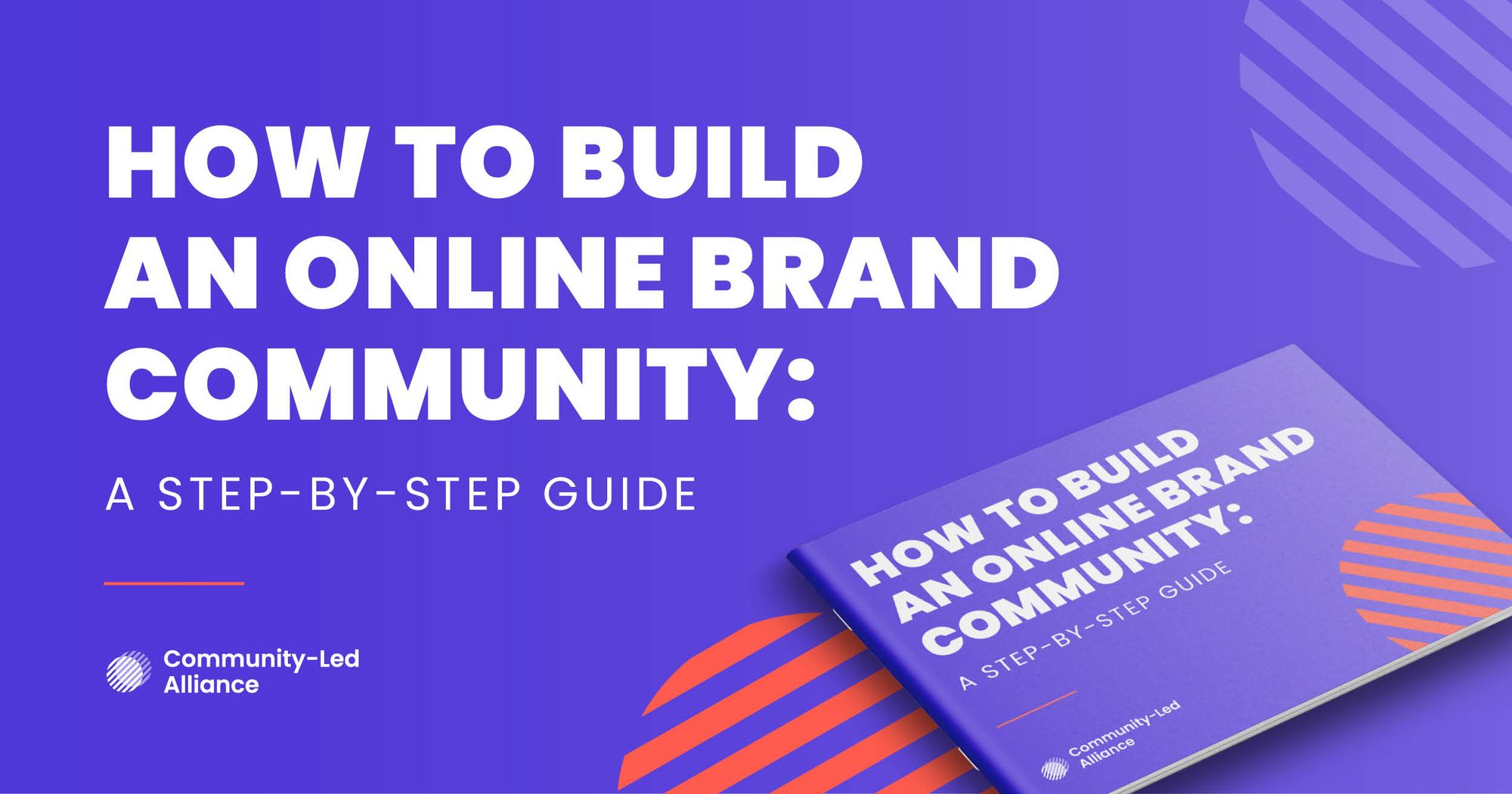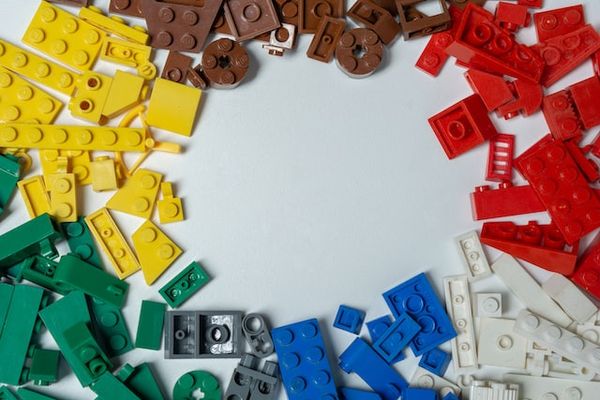This article has been built from a Q+A discussion with two incredible product marketing experts:
- Steve Francia, who was the Product and Strategy Lead for Go Language at the time
- Jeana Jorgensen, Senior Director of Cloud Product Marketing and Sustainability at Google
In this article, they'll be focusing on:
- Why it's important to invest in your community
- Learning from your developer community
- Building vs promoting your community
- Creating the right team to support your community
- Making your community relevant and useful
- The non-negotiables for an awesome community
Why it’s important to invest in your community
Q: Jeana, you recently launched the Google Cloud Community and in your release, you spoke about investing in the community. Why was investing in it so important for Google Cloud?
Jeana Jorgensen: There are a few reasons. The community is what makes the services interesting, right? There’s a huge amount of innovation that comes from our developer community, customers, and partners.
Investing in our consumers gives us an opportunity to learn from them, see what they're developing, understand how we can make our services better, and just get a closer insight into what's happening out in the world.
The real goal for us investing in StackOverflow in particular was to get closer to that community and be able to have deeper discussions.
You can ask and answer questions today on StackOverflow, but Google Cloud Collective gave us a closer bond because it’s made up of people who've opted into the community and want to have a deeper dialogue and learn. I think for any community, it's important to invest in it if you want it to thrive.
Q: Steve, you’ve worked at some very well-known organizations like Docker, MongoDB, and Drupal. What have you learned about the importance of investing in the community?
Steve Francia: I've learned that it is everything. If you don't have a strong, vibrant, and welcoming community, your technology can last for a while, but it's not going to thrive and it's not going to grow.
If you're looking to grow, make an impact, and change the world, which was our goal at every one of those orgs, community is the only way to do it.
It's really a symbiotic relationship between technology and the community. Technology depends on it to survive, grow, and develop, and the community depends on technology to accomplish its goals. It's impossible to do without both sides equally invested.
Teresa Garanhel, Senior Copywriter at our sister community Developer Marketing Alliance, outlines the exact reasons behind why develop communities matter. 👇

Learning from your developer community
Q: You both mentioned learning from the community and the community learning from each other. Have you found anything else besides community that would allow you to learn from your developers on a grand scale, or is it the only way to do that?
Jeana Jorgensen: I think 'community' is a really interesting word because some people associate it with a product or a location. It's very fluid. Community is all of those things, right? It's wherever people go to congregate, learn from one another, and find people to discuss interesting and mutually relevant topics with.
Everything we do is community driven because we think of our users as the center of the universe. Whether they’re seeking one-to-one feedback or feedback from a broad public forum, the community is generating and gathering new information to share.
Sometimes they’re sharing their frustrations, sometimes it's things that they're excited about – it's all of the things that you get in everyday life in personal or work-related communities.
For me, the community is a very broad thing that encompasses learning, certifications, different forums like Stack Overflow and GitHub, and much more. It's not one particular monolithic thing.
Steve Francia: I was gonna say something very similar. We use the word community to mean a group of people.
I'll speak about the community around Go specifically – that's where I am now. Everyone thinks they're part of the Go community, but everyone's version of that community is different.
For some people, it's the StackOverflow NGO community; for others, it's the Reddit Go community; for some, it's their local meetup community; for some, it's a project post on GitHub that they’re active in, or maybe a combination of several of those things.
Everyone has their own version of what it is from their own perspective, which is great. That's what community is. It isn't this one thing that's the same for everyone. It's a very unique thing.
Now, you asked about learning. Since the community is a group of people working with technology, there's no other place to learn. The place to learn from other users is in our community.
Building your community vs promoting your community
Q: Let's talk specifics and see where we have commonalities or differences between a commercial product like Google Cloud and an open-source product such as Go when it comes to their communities.
Which comes first: promoting the community or seeding and building the community, and why?
Steve Francia: We built Go 13-ish years ago and we made a conscious choice to open-source it because if languages aren’t growing in adoption, they just don't survive. The best way to grow adoption is to open-source it, make it publicly available, and let people have access to it.
We built an early version of Go behind closed doors just to know that we had something worth sharing, and then we immediately started growing the community. That was our first goal – to grow a community, then get a group around us to build the libraries because a language is not just the language; it's a whole ecosystem with many libraries, users, and tooling.
Once we had a little thing to build a community around, the community was our first priority. That's true about Go as a language, and it was true for the other projects that I've been involved with as well.
Jeana Jorgensen: On the Google Cloud front, we've seen the community surface as we’ve started releasing the services. Daily, weekly, and monthly, the community just grew.
In terms of promoting the community versus seeding and building the community, we always want to help build a community and whatever it is that they need, but it’s sort of a chicken and egg question because part of that comes from promoting the people who are doing amazing work within the community and sharing their gifts, talents, and expertise with others. You kind of need to do those things in tandem.
From a Google Cloud standpoint, we’re working to be better by building a community where Google Cloud resources, people, and technology are universally available to everybody.
We've had a lot of great feedback from members of our developer community who say they love our technology and find it incredibly innovative, and they love our contribution to the open-source space. However, we’ve sort of fallen short by being more academic in our approach and less focused on being accessible.
Part of the reason we started Google Cloud Collective with Stack Overflow was to be more accessible to our community and have people show up in person, so it’s not all online and self-service only and there’s some real human interaction.
That's a big goal for our community going forward. We'll also be investing a lot more in promoting our developer community and the individuals within it. That's going to be a big push for us.
Our sister community, Community-Led Alliance, has released a playbook to provide you with the step by step approach you need to take to build an online brand community.👇

Building the right team to support your community
Q: When you're thinking about the community, who is on your core team, and what skill sets do you need on that core team?
Steve Francia: That's a tough question. It's hard to define a core team, especially with open-source projects. We could restrict working on Go’s community to just the people employed by Google, but I think our core team is bigger than that.
It includes people like the moderators on Reddit, as well as Collective's folks who are now among our recognized members – many of them are not Google employees, yet they're active and influential voices in the community.
In terms of the skills the core team needs, empathy has got to be the biggest one, and we're fortunate to have a team that has that. Certain members are stronger than others, but a big part of it is listening, being empathetic to the experiences that others are having, and then reacting in a way that seeks to understand.
Emotional intelligence is also a really big one, and we're fortunate to have some fantastic people on our team that I've learned a lot from in that regard. It’s so important to know how to have a diplomatic, empathetic, and welcoming conversation.
I think the third skill that's critical is inclusion. To use Go as an example, we're growing like crazy. Every 12 months or so we're doubling in size. In the last year, we've added more people than in the 12 years before that, which is crazy to think about. There means there are a ton of new people who are unfamiliar with that community and are trying to find their path. We want to make that an inclusive experience for them.
Jeana Jorgensen: Steve, I don't think I could have said that any better myself. People often think we're looking for somebody with big data experience or a background in technology or language.
It's really none of those things. We're looking for people with empathy, who want to be part of a community to make the community better – that's what makes really vibrant communities the best.
If you think about any product that's ever taken off, it's because the community helped it take off. That comes back to the core of your users who love your technology, or who maybe didn't originally love your technology but helped you make it better by giving lots of great feedback in a very diplomatic way.
Another thing to remember is that a community comes with different personalities. As your community doubles or triples in size year over year, the intention of the community might change because you have different perspectives coming in.
Through all these changes, we need to maintain what the community stands for and the conduct that we expect from the community. How we treat people is a huge part of that.
One of the most intimidating things about coming into any community anywhere, whether it’s technical or not, is that there are a bunch of experts already there. If you're new, you’re probably there to learn, but if those experts forget about their roles as teachers, the community can take on a form that we don't necessarily want it to take on.
We have to be clear about the intent of the community and reiterate the code of conduct that we expect. We want people to share feedback, so radical candor is important, but people have to do that in a way that’s diplomatic, empathetic, and remembers that we’re all trying to make the community better, and not just trying to show how smart we are. That’s a really important component of our community being healthy.
Making your community relevant and useful
Q: What are one or two things that you’re doing to make sure your communities stay relevant and useful?
Jeana Jorgensen: I think the one thing our community really needs to do is get an understanding of who's in the community. Because we've been so online in self-service at Google Cloud, it can be challenging to know exactly who is in the community. We might not have much more than a username to go on.
To make sure it remains relevant and feels like a true community where people know each other, we want to make sure we understand who our community members are as people and what they do inside and outside of Google Cloud.
Steve Francia: Our big goal is to connect the different parts of our community. As I mentioned, we have all these micro-communities of Go users on StackOverflow, Meetup, the Kubernetes and Hugo projects, and GoBridge – our diversity and inclusion organization.
We want every part of our community to feel connected. It's very easy to feel isolated in one, but we're all part of one big Go community. One place we get cross-pollination is our conferences, but only a very small percentage of people in our community can actually attend them.
We see Collectives as a huge part of how we can connect these communities. There was already a Stack Overflow community of Go users, and we knew we wanted them to be included in the project. When we started the idea of Collectives with the team at Stack Overflow, it was so clear that this was a chance to build bridges that weren't there before.
That's not to say that they can't have local communities anymore, but they should feel part of a greater whole. That's going to make the community feel more relevant and inclusive and help it to evolve.
Non-negotiables for an awesome community
Q: If you had a limited budget (and to be frank, all of us have limited budgets, regardless of how large our communities are), what areas would you absolutely continue to support your community? What are the non-negotiables when it comes to your budget?
Jeana Jorgensen: For us, it's twofold. First and foremost, you can do great things in the community without a budget. Giving feedback is free. Participating in forums is free. Learning from each other and setting up Google Meets and Zoom meetings are all free. We would want to continue to invest time in all of those areas for connection.
The second thing that we’d really need to focus on would be curating more interactive online experiences. You can rely on things like word of mouth to build and grow the community but to get more reach, you have to go where users are, and to find them, you need to use things like search engine optimization.
The priority here would be using whatever Google-led technologies we can to find those users who don't know that Collective or the broader Google Cloud community exists and offering them an opportunity to join.
Steve Francia: If I had to pick one thing I’d pick diversity and inclusion. The privileged have an easy on-ramp, but we don't want a community made only of privileged people.
We want a community of everyone, and giving scholarships and sponsorships can make a profound difference in the shape of the community. If that was the only thing in our budget, I’d be happy with that.


















 Follow us on LinkedIn
Follow us on LinkedIn





.svg?v=85af970283)